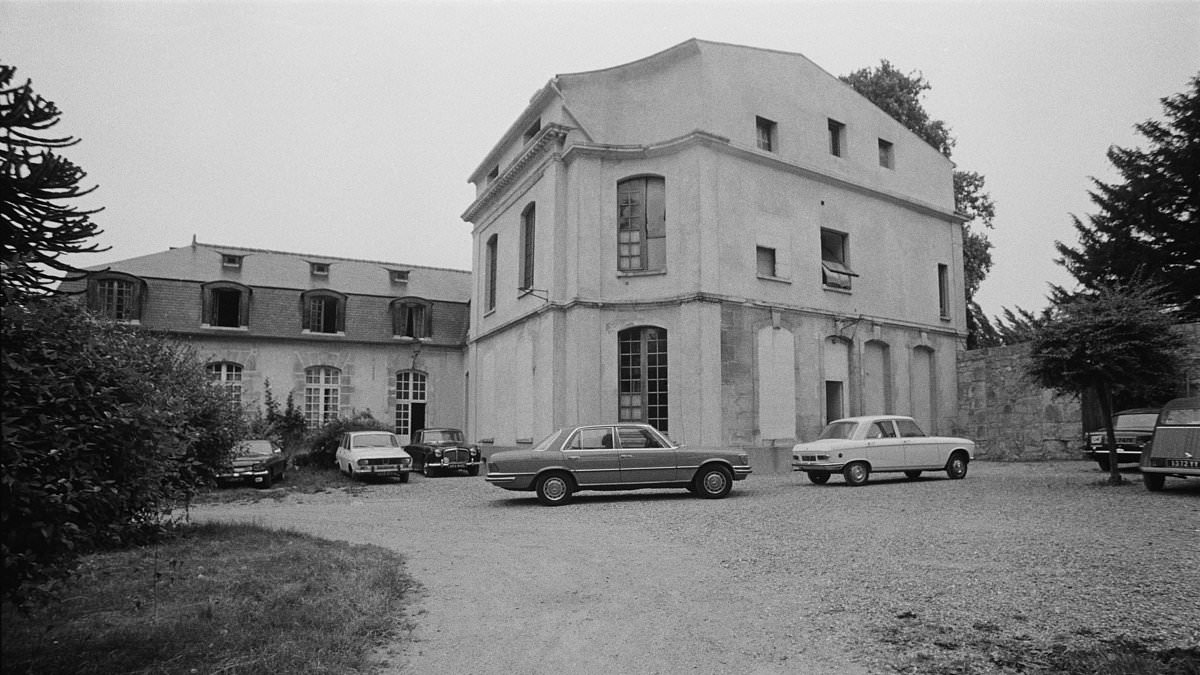QUESTION: Was Elton John’s Honky Chateau a real place?
This was the Chateau d’Herouville, an 18th-century chateau in the Val d’Oise département not far from Paris, that was converted into a recording studio.
The French film composer Michel Magne purchased the chateau in 1962. He constructed his recording studio after a fire devastated its left wing in 1969. His goal was to create an idyllic and inspiring environment where artists could live and work simultaneously.
The studio, originally known as the Strawberry Studios, became a magnet for prominent musicians.
Texas musician Rex Foster, who recorded his album Roads Of Tomorrow (1971) there, claims to have coined the nickname Honky Chateau.
Elton John recorded three of his finest albums at the chateau; Honky Chateau (1972), which featured his song Rocket Man; Don’t Shoot Me I’m Only The Piano Player (1973); and Goodbye Yellow Brick Road (1973).
David Bowie recorded Pin Ups (1973) and T. Rex made The Slider (1972) and Tanx (1973) there.
The musician Laurent Thibault took over management of the studio in June 1974. His input was important in the recording of three classic 1977 albums: David Bowie’s Low, Iggy Pop’s The Idiot and the Bee Gees’ Saturday Night Fever.
Despite its successes, the studio faced financial difficulties, leading to its decline, and by the early 1980s it had closed and the chateau fell into disrepair. Following refurbishment, it reopened in 2020.
Stephen Dawson, Didcot, Oxon
QUESTION: Growing up in Kent many years ago, we referred to shoe repairers/cobblers as ‘snobs’. Where does this expression come from?
The term snob for a shoemaker dates from at least the mid-18th century. The Vocal Medley, a collection of popular songs published in York in 1755, featured the lyric: ‘But the last of the Cobler is said to relate, There’s an end of the poor Snob’.
Just where the term comes from is a mystery. A sensible yet unproven conjecture is that it was the shoemaking equivalent of ‘snips’, used by the tailoring profession since the 16th century, with the obvious borrowing of the ‘ob’ from cobbler.
By 1848 the word was being used to describe someone ‘who vulgarly apes his social superiors’, as seen in William Makepeace Thackeray’s work The Book Of Snobs. Again, the origin of the term is debated. John Camden, in A Dictionary Of Modern Slang, Cant And Vulgar Words (1859), includes an intriguing etymology. He suggests that it derived from the idea that commoners were registered at university as ‘s. nob.’ meaning sine nobilitate (without nobility). Over time, the term came to be used to describe a person who believes their tastes are superior to those of other people.
Michelle Rowse, Morpeth, Northumberland
QUESTION: Are there any other senior officials who, like Donald Trump, have been tried?
In a controversial decision, Donald Trump made U.S. history as the first former president to be criminally convicted after he was found guilty by a Manhattan jury of 34 counts of falsifying business records related to hush-money payments to a porn star.
Albert B. Fall, the U.S. Secretary of the Interior, was involved in the Teapot Dome scandal and convicted of accepting bribes in 1929. He was sentenced to one year in prison, becoming the first former U.S. cabinet official to be incarcerated for crimes committed in office.
However Donald Trump is certainly not the first world leader to be tried. Former Peruvian President Alberto Fujimori, who ruled the country from 1990 to 2000, spent over 15 years in jail, having been convicted of embezzlement and sanctioning the killing and kidnapping of anti-government guerrilla fighters and activists.
Lee Myung-bak, South Korea’s president from 2008 to 2013, was sentenced to 15 years in prison in 2018 for bribery and embezzlement. His successor, Park Geun-hye, the first woman president, was sentenced to 24 years in jail after she was found guilty of abuse of power and coercion. Both were later given a presidential pardon.
Nicolas Sarkozy, the former president of France, was convicted in 2021 of corruption and influence peddling. Yet to do time, he was ordered to wear an electronic tag.
Deborah Brown, Brentwood, Essex
